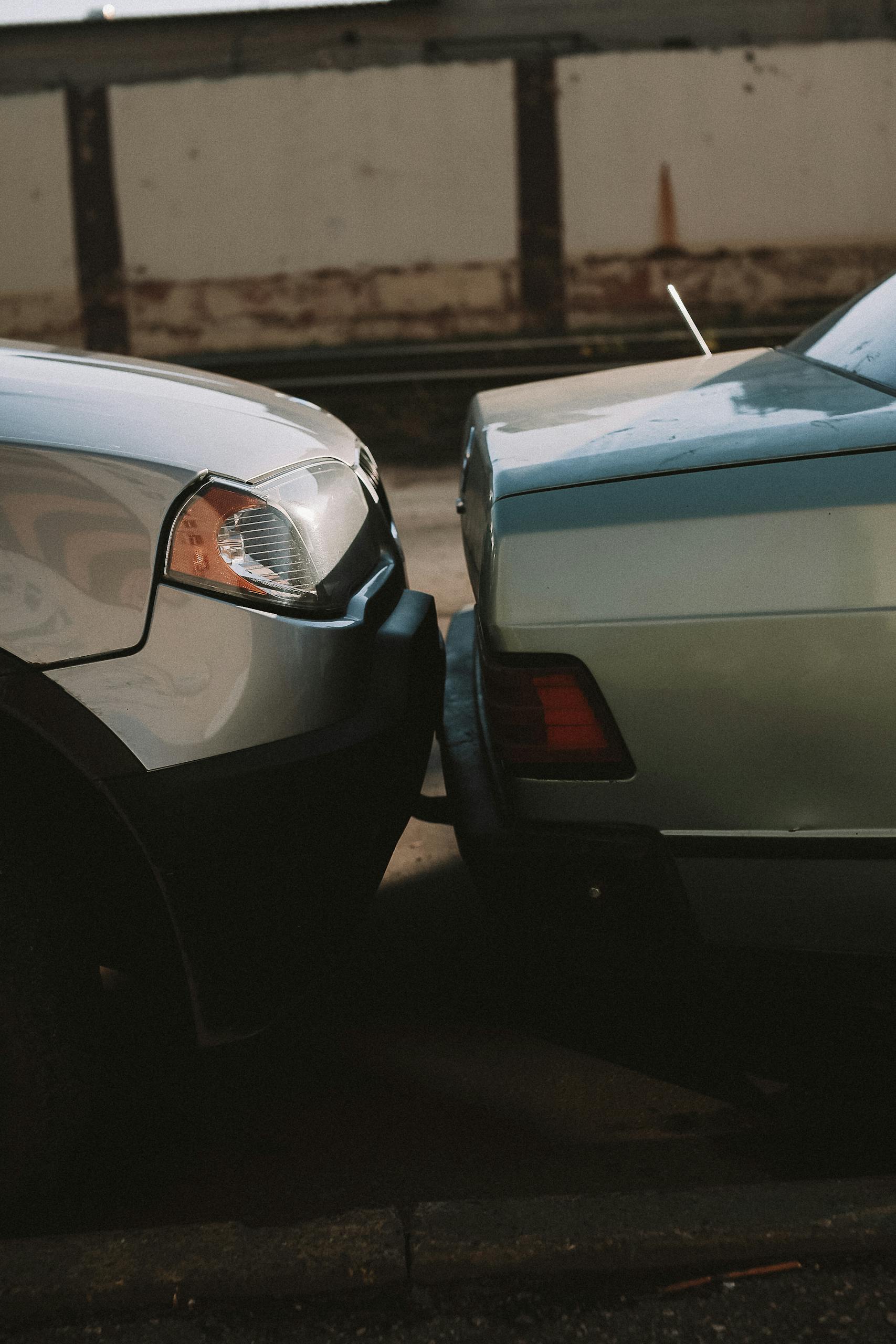Is a Hit and Run a Felony? The Truth Revealed
Imagine this: You’re driving home after a long day, and suddenly, crunch – you’ve hit something. Panic sets in, and for a split second, you consider just driving away. But is that split-second decision enough to land you in felony territory? Buckle up, because we’re about to unpack the complex world of hit-and-run laws, and please believe, it’s a wild ride!
| Hit and Run Statistics | Numbers |
| Percentage of all crashes that are hit-and-runs | ~700,000 |
| States where all hit-and-runs can be felonies | 11% |
| States where all hit and runs can be felonies | 13 |
| Average prison sentence for felony hit and run | 3-15 years |
| Percentage of fatal hit and runs solved | ~60% |
The Million-Dollar Question: Is Every Hit and Run a Felony?
Short answer: No, but don’t breathe that sigh of relief just yet! Whether a hit and run is classified as a felony depends on several factors, including the severity of the accident, state laws, and sometimes even the judge’s discretion.
Let’s break it down:
- The severity of the Accident:
- Property damage only: Usually a misdemeanor
- Injury involved: Often a felony
- Fatality: Almost always a felony
- State Laws:
- Some states, like California, have a “wobbler” law where the prosecutor can choose to charge as a misdemeanor or felony
- Other states, like Texas, automatically classify certain hit-and-runs as felonies
- Prior Offenses:
- A history of hit-and-runs or other traffic violations can bump a misdemeanor to a felony
Example: John sideswipes a parked car in Ohio and drives off. In Ohio, this is likely a misdemeanor. But if John had done the same in Louisiana and the damage exceeded $500, he’d be looking at a felony charge!
State-by-State: Where Does Your Hit and Run Hide?
Just like that questionable leftover in the back of your fridge, hit-and-run laws can vary wildly depending on where you are. Let’s take a road trip across a few states:
- California:
- Property damage: Misdemeanor
- Injury or death: Can be charged as a felony (“wobbler” law)
- Florida:
- Leaving the scene of an accident with injuries: Second-degree felony
- With fatalities: First-degree felony
- New York:
- Property damage: Traffic infraction
- Personal injury: Misdemeanor
- Serious physical injury or death: Class D felony
- Texas:
- Accident resulting in injury or death: Automatically a felony
Example: Sarah hits a pedestrian in a crosswalk, panics, and drives off. In California, the prosecutor could choose to charge this as a misdemeanor or felony. But if Sarah did this in Texas, she’d be facing an automatic felony charge.
The Felony Factors: What Turns a Fender Bender into a Felony?
Buckle up, because we’re diving into the nitty-gritty of what can turn your minor oopsie into a major oh-no:
- Injuries:
- Minor injuries might lead to misdemeanor charges
- Serious injuries often result in felony charges
- Fatalities:
- Almost universally considered a felony across all states
- Property Damage:
- Some states have a monetary threshold (e.g., $1,000 in damage) that bumps it to a felony
- Repeat Offenses:
- Multiple hit-and-runs can escalate charges to felony level
- Intoxication:
- Leaving the scene while under the influence often results in felony charges
Example: Mike clips a mailbox and drives off. Normally a misdemeanor, but if Mike was drunk at the time or if this was his third hit and run, he could be facing felony charges.
The “Oops, I Didn’t Know” Defense: Does It Ever Work?
We’ve all had those moments where we swear we didn’t feel a thing. But can claiming ignorance keep you out of felony territory?
- Knew or Should Have Known:
- Most laws require that you knew or should have reasonably known that you were in an accident
- Visible Damage:
- If there’s obvious damage to your car, the “I didn’t know” defense likely won’t fly
- Duty to Investigate:
- Some states require drivers to stop and check if they suspect they might have been in an accident
- Hit and Run vs. Failure to Report:
- In some cases, returning to the scene later or reporting to police within a certain timeframe can reduce charges
Example: Lisa feels a slight bump while parking but doesn’t see any damage and drives off. Later, she’s charged with a hit and run. If Lisa can prove she genuinely didn’t know and immediately reported it when she found out, she might avoid felony charges.
The Consequences: More Than Just a Slap on the Wrist
If you thought a felony hit-and-run just meant a stern talking-to and a fine, think again! The consequences can be life-altering:
- Prison Time:
- Felony hit and runs can result in 1-15 years in prison, depending on the state and circumstances
- Fines:
- Felony fines can range from $5,000 to $20,000 or more
- License Suspension or Revocation:
- Many states automatically suspend or revoke licenses for felony hit-and-runs
- Criminal Record:
- A felony conviction can impact job prospects, housing applications, and more
- Civil Lawsuits:
- Victims can sue for damages, potentially leading to significant financial liability
Example: Tom commits a felony hit-and-run in California. He’s sentenced to 3 years in prison, fined $10,000, loses his license for 5 years, and now has a felony record that makes it nearly impossible to find a job in his field.
The Plot Twist: When Staying at the Scene is Worse
Here’s a curveball for you: Sometimes, believe it or not, fleeing the scene might actually result in lesser charges than staying. How’s that for a moral dilemma?
- DUI vs. Hit and Run:
- In some states, penalties for DUI causing injury can be more severe than hit-and-run
- Evidence Preservation:
- Leaving the scene can make it harder for prosecutors to prove intoxication or other aggravating factors
- Moral vs. Legal Obligations:
- While morally wrong, fleeing might sometimes lead to lesser legal consequences
- Statute of Limitations:
- Some states have shorter statutes of limitations for hit-and-run compared to other charges
Example: Jake, who’s been drinking, hits another car. If he stays, he’s facing DUI charges. If he flees, he might face hit-and-run charges but avoid the DUI. (Disclaimer: We’re absolutely NOT recommending this. Always stay at the scene!)
FAQs: Your Burning Questions Answered
- Q: If I hit a parked car and leave a note, is it still a hit-and-run? A: Generally, no. Most states consider leaving your contact information as fulfilling your legal obligation. However, for accidents involving injuries, you’re required to stay at the scene.
- Q: Can I be charged with a felony hit and run if I wasn’t at fault for the accident? A: Yes. The felony charge is for leaving the scene, not for causing the accident. Even if you’re not at fault, leaving the scene can result in felony charges.
- Q: If I go back to the scene after initially leaving, can I still be charged? A: It depends on the state and how long you were gone. Some states have a window (like 24 hours) where returning can mitigate charges. However, it’s always best to stay at the scene.
- Q: Can a passenger be charged with felony hit and run? A: In most cases, no. Hit-and-run laws typically apply to the driver. However, a passenger could potentially face other charges if they encouraged the driver to flee.
- Q: If I hit an animal and drive off, is that a felony hit and run? A: Generally, no. Most hit-and-run laws apply to accidents involving other vehicles, property, or people. However, some states have specific laws about hitting domestic animals.
Remember, while we’ve tried to provide accurate information, laws vary by state and individual circumstances. Always consult with a legal professional for advice on specific situations. And most importantly, if you’re in an accident, stay at the scene. It’s not just the law – it’s the right thing to do!







